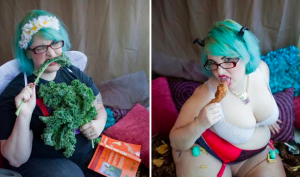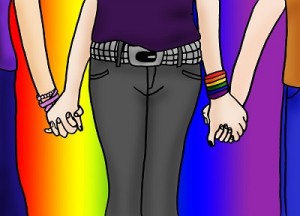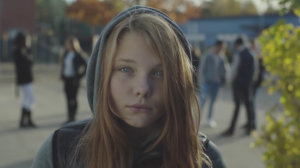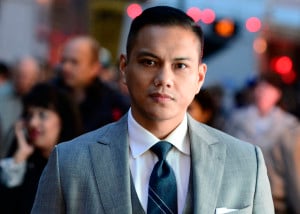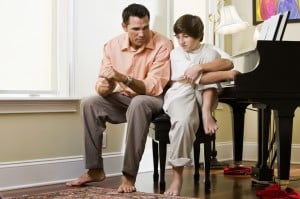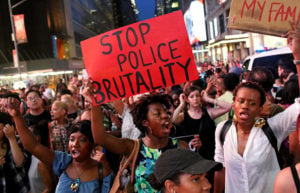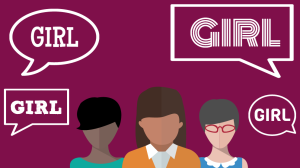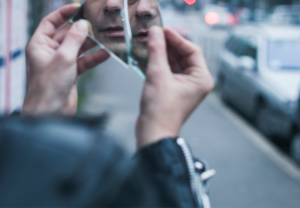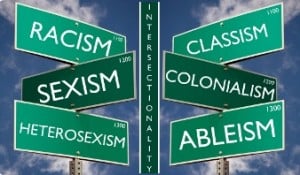
Person sitting by a window and looking away.
CW: Mention of sexual violence
I’ve never felt comfortable identifying as a survivor of sexual violence. I’m from a Black Southern Baptist family where historically taboo things like sexual abuse are left unspoken. I’ve internalized this behavior when it comes to discussing my experiences with sexual violence.
Although I rarely disclose my status as a survivor, I’ve been a part of anti-rape and anti-violence work ever since volunteering at a domestic violence shelter during college nearly a decade ago. It’s been more important to me to hold space for other survivors’ healing than my own.
While organizing against rape and sexual assault over the years, I’ve mostly avoided my own survivorship — until now. The #MeToo campaign has made it impossible to ignore how my own sexual abuse has shaped me, for better or for worse.
#MeToo spread like wildfire across social media platforms after actress Alyssa Milano encouraged women to tweet the hashtag if they’d ever been sexually assaulted or harassed. Thousands of everyday people and celebrities accepted Milano’s Oct. 15 call to action.
Though mainstream media outlets credited Milano with creating the campaign, #MeToo was actually founded by a Black woman organizer named Tarana Burke as a project of Just Be Inc., an organization that supports the health and well-being of young women of color.
When we talk about #MeToo, we must always remember to honor the true origins of the campaign. Like so many other social justice movements, it rose from the struggles of Black women and was co-opted by white women.
Burke began the Me Too movement as a way to heal from her own sexual abuse. In an interview with Democracy Now, Burke said the movement is about survivors talking to other survivors and using the power of empathy to stomp out shame.
#MeToo stories of privileged cisgender (cis) heterosexual white women have been the most amplified so far. Because of white supremacy, white women are more likely than women of color (WOC) to be believed and validated when disclosing sexual abuse, both online and in the real world.
As a Black queer nonbinary (NB) woman survivor, my feelings about #MeToo are all over the place. Reading #MeToo posts by fellow WOC and queer and transgender people of color (QTPOC) fills me with heartbreak and anger, especially when their experiences are questioned.
Furthermore, #MeToo constantly reminds me of my own sexual abuse — something I’m not ready to reckon with yet. The hashtag was birthed by someone with whom I share common identities, but it still doesn’t feel like home. Can it truly hold the pain and sorrow of this tender Black queer NB girl?
Things will have to change in order for queer and transgender (trans) folks to truly feel assured that our stories belong in a campaign like #MeToo.
Here are 5 ways we can center queer and trans survivors within the #MeToo movement:
1. Be inclusive of LGBTQ identities and relationships when discussing #MeToo and other movements to end sexual violence. Rape and sexual assault don’t only happen to cis straight women.
Our society typically portrays rape and sexual assault as things that are solely experienced by cis straight women, which is far from the truth.
Sydney PK, the Sexual Assault Advocacy Coordinator at The Northwest Network of Bisexual, Trans, Lesbian & Gay Survivors of Abuse in Seattle, says queer and trans folks are more vulnerable to sexual violence than other groups since we’re already relegated to the margins.
The facts don’t lie: According to PK, 46%of bisexual women experience rape in their lifetime; lesbians are significantly more likely than others to experience gang rape; and 55% of trans men and 68% of trans women experience sexual assault in their lifetime.
We know sexual abuse is happening to LGBTQ folks at disproportionately high rates, so it’s disheartening to see cis straight white women take up so much space in the #MeToo campaign. Not seeing ourselves reflected in #MeToo is silencing for queer and trans survivors.
K, a Campus Sexual Violence Specialist at NYC Anti-Violence Project, challenges folks to check their language when discussing sexual violence and to ask themselves if it’s inclusive of trans, non-binary and gender non-conforming identities.
“I don’t think there are enough people talking about what inclusion is in terms of making sure that queer and trans people are represented when it comes to storytelling, statistics, and representation,” K says of the current state of #MeToo.
2. Follow the wisdom of feminists of color who’ve been doing anti-rape and anti-violence work for years.
At the recent National Women’s Studies Association Annual Conference, the mother of intersectionality Kimberlé Crenshaw reminded conference-goers that fighting sexual violence is hardly new for Black feminists.
“Sexual harassment has been a condition of Black women’s lives since we got here. And fighting sexual violence has been a part of the anti-racist struggle since the beginning,” Crenshaw said.
It’s true that WOC and QTPOC feminists have laid the groundwork that made #MeToo possible for decades, if not centuries. Not only have they called out rape and sexual assault, but they’ve also shed light on the oppressive systems that cause sexual violence to happen.
Despite everyday Black queer and trans women’s long history of organizing against sexual violence and being most impacted by this issue, our voices are often erased in favor of cis straight white women in positions of power.
We can’t end sexual abuse if we ignore those who started this movement and would benefit most from its success, which are Black queer and trans women.
“When we are able to reach and impact Black women, in particular, Black trans women, then we’re all free,” K says.
3. #MeToo can be triggering, traumatic, and unsafe for queer and trans survivors. Please don’t force us to participate.
#MeToo was started to foster a sense of community between survivors and to give survivors an outlet for their healing. Although intended to empower survivors, it initially made me feel hopeless. I panicked when greeted by an onslaught of #MeToo statuses on Facebook.
I’m grateful for survivors who’ve been courageous enough to disclose their sexual abuse on social media because of #MeToo. These survivors are chipping away at rape culture in the US and beyond by sharing their stories.
However, I also recognize that #MeToo has harmed me and other survivors by triggering traumatic personal memories of sexual abuse. Furthermore, many queer and trans survivors have yet to participate in #MeToo because it doesn’t feel safe for us.
Barriers that stop LGBTQ survivors from participating in #MeToo include the fear of being told we’re queer due to child sexual abuse; being labeled as a “sexual predator” because of our sexuality, and being told that rape can “cure” our queerness.
Queer and trans survivors aren’t a monolith; some of us are comfortable disclosing sexual violence online and some of us aren’t. Being our ally means meeting us where we’re at, respecting our boundaries, and not expecting us to perform emotional labor just so you can be educated.
4. Make talking about healthy relationships and ending rape culture a regular activity with your family, friends, and co-workers.
Talking about rape and sexual assault isn’t easy or fun, but it’s necessary. We need to teach our kids about consent at a young age and tell our loved ones that joking about sexual violence is unacceptable.
KP, who works at an anti-violence organization in Seattle called API Chaya, says that it makes a huge difference when privileged folks speak out against rape jokes since people with marginalized identities don’t always feel safe enough to do so.
They also suggest normalizing everyday conversations about our intimate relationships because sexual violence thrives in secrecy and isolation.
“I think being open about how we conduct our relationships is a big way that people can really shift the culture around sexual violence,” KP says.
5. Help create safer spaces where queer and trans survivors are believed and validated when disclosing our sexual abuse.
Queer and trans survivors all heal differently. Not all of us wish to heal through sharing our stories in public, but those of us who do should have access to safer spaces online and in real life where we can be surrounded by peers who are committed to our healing.
“I think if anybody discloses and people are able to hold that space and just reflect that back, that’s a really great first step,” KP says.
If you want to be an ally to LGBTQ survivors, give your resources to organizations that provide support systems for us. PK facilitates a support group called Thriving While Healing at the NW Network for queer and trans rape survivors that does just that.
“Thriving While Healing offers [a] much-needed reprieve for queer and trans survivors of all genders who have been told their experience was too brutal, too ugly, too insignificant, too different or illegitimate to warrant support,” PK says.
***
I’m still not sure what I need to heal from my own sexual abuse. Because of #MeToo, I’m thinking about what my healing would look like now more than ever. The hashtag has truly been a double-edged sword for me.
As #MeToo grows and evolves, I pray that queer and trans survivors aren’t left behind. Our voices deserve to be front and center in the movement as much any other survivor, and we can’t make this a reality by ourselves.
If you’re an LGBTQ person struggling with sexual abuse, the NW Network can offer advocacy at 206.568.7777.
[do_widget id=’text-101′]
Neesha Powell-Twagirumukiza (she & they pronouns) is an Everyday Feminism Reporting Fellow. Neesha identifies as an intersectional feminist, womanist, writer, community organizer, facilitator, dancer, freedom fighter, wife, and cat mama. She’s constantly conspiring in the name of liberated Black futures, queer and trans people of color power, solidarity economics, and transformative justice/community accountability. Neesha’s based in a suburb south of Seattle, where she lives, loves, and creates with chosen family.
Search our 3000+ articles!
Read our articles about:
Our online racial justice training
Used by hundreds of universities, non-profits, and businesses.
Click to learn more





